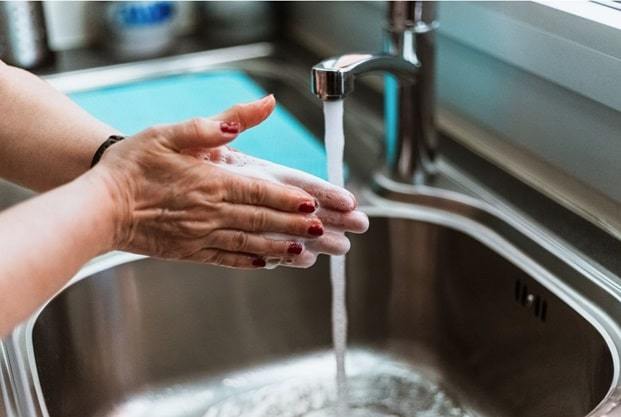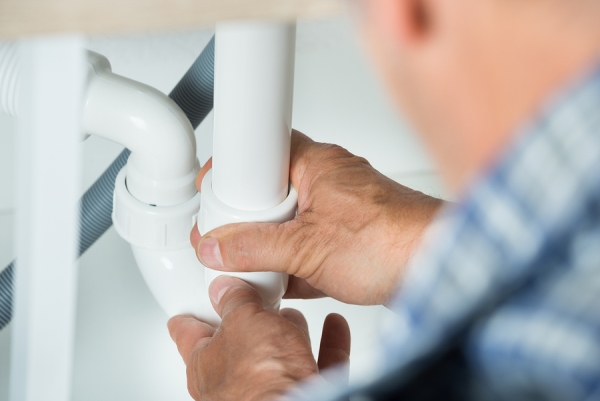Ways to Fix Emergency Plumbing with Quick Tips Until Help Arrives
CallIn this article in the next paragraphs you'll find a bunch of sound details on the subject of Expert Tips for Emergency Plumbing Repairs.

Plumbing emergencies can strike at any moment, triggering tension and potential damages to your home. Whether it's a ruptured pipe, a blocked drainpipe, or a dripping tap, recognizing just how to take care of the scenario until a professional plumber arrives can save you from more issues. This write-up gives crucial emergency plumbing tips to help you mitigate damages and restore control during a pipes dilemma.
Shut off the Supply Of Water
The primary step in any kind of pipes emergency is to turn off the supply of water. For localized issues, such as a leaking tap or commode, switch off the shutoff near the fixture. In the case of a significant leakage or burst pipe, situate your home's major water shut-off valve and turn it off instantly. Understanding the location of these valves beforehand can save beneficial time throughout an emergency situation.
Address Small Leakages with Momentary Solutions
Tiny leaks can quickly end up being significant problems if left uncontrolled. Make use of these momentary repairs till professional help arrives:
While these repairs aren't long-term, they can assist reduce water loss and damages.
Unclog Drains Pipes Safely
A blocked drain can be a frustrating and untidy issue. Below's exactly how to tackle it:
If these techniques do not work, prevent using extreme pressure, as it may get worse the clog.
Manage Overflowing Toilets
An overruning toilet can trigger immediate mayhem. Below's what you ought to do:
Turn off Your Hot Water Heater
In certain emergencies, such as a ruptured pipeline, it's a good idea to turn off your hot water heater. This prevents getting too hot or damage to the device when water quits flowing. Shut off the power supply to the hot water heater (electric or gas) and let it cool off to prevent possible hazards.
Briefly Quit a Ruptured Pipeline
A burst pipe can result in considerable water damages in mins. To mitigate the problem:
Call a specialist plumber instantly to attend to the problem completely.
Handle Frozen Piping Very Carefully
In chillier climates, frozen pipelines are a typical emergency. If you suspect an icy pipeline:
Protect against More Damages
Taking fast action to minimize damage can save you time and money in the long run. Below's exactly how:
. Have an Emergency Situation Plumbing Set
Prepare a basic pipes emergency package to manage minor issues successfully. Your kit ought to consist of:
Having these devices available can make a considerable difference in your capacity to manage emergency situations.
Know When to Call an Expert.
While quick fixes can aid temporarily, particular plumbing problems call for immediate professional attention. Call a plumbing professional if:.
Promptly contacting an expert makes certain the problem is resolved correctly and protects against more difficulties.
Final thought.
Plumbing emergency situations can be overwhelming, but with the appropriate expertise and devices, you can handle the situation successfully up until assistance arrives. By switching off the water, addressing small leaks, and using momentary fixes, you can lessen damages and maintain your home safe. Remember, these suggestions are short-term remedies; constantly speak with an accredited plumbing technician to deal with the source of the issue. Preparation and fast thinking are your finest allies in any type of plumbing emergency situation.
8 Helpful Tips for Managing Plumbing Emergencies at Home
If your plumbing system hasn’t failed once, wait for it because almost everyone has a story to tell. Sometimes, it could be simple emergencies such as a leaking pipe, a blocked cistern, or even a big burst pipe. In situations like this, you need to have some handy tips to save you some money and from possible damages.
Take care of minor issues early.
Sometimes, you could have avoided an emergency by taking proactive measures while it was still early. Some major plumbing emergencies can be a result of an ignored minor issue. We recommend that you have items like plumbing tapes and other related items. A plumbing tape can allow you to manage minor leaks before the plumber arrives.
Cut off the water supply.
This tip is essential in almost any type of leakage problem. For problems like minor leakages in the toilet or kitchen, turn off the supply that takes water to the affected pipes. If the leakage is a major pipe, you must shut off the supply valve to the entire building. This will help you avoid flooding your home and neighbors if you share a flat.
Know your plumbing system
Folks typically move into a new apartment without understanding the water supply around the building. This can prove disastrous if a water emergency arises and the plumber is far away. The previous tip will prove useless if you don’t practice this one. More importantly, know where your water shut-off valve is located – you’ll need that knowledge to prevent potential home floods.
Have some common handy tools
There are lots of plumbing emergencies that you can handle without hiring a plumber. That’s why you must keep some tools available always. Some tools that you can use to fix simple plumbing emergencies easily include plumbing tapes, screwdrivers, thread seal tapes, plungers, pliers, tape measures, and rubber gloves.
Insulate your pipes from cold
You’ll save yourself from many plumbing expenses if you protect your water pipes from the cold. This is because of the harmful effects that cold weather can have on your pipes. During winter, your pipes can burst from being overly expected to freezing temperatures. So, make sure insulators are there to keep the pipes working correctly.
Avoid practices that will clog your toilet.
Many people indulge in practices that can damage the plumbing system of the entire building. One of these is when they use their toilet to dispose-off garbage. They flush all kinds of things, such as paper towels, bandages, hairs, female sanitary products, etc., down the toilet. This will block your toilet in the long run, incurring unnecessary expenditures. Dump such waste in the trash instead.
Check your dials regularly.
Sometimes, there could be leakages in your home without noticing them in time. So, constantly monitor your water meter dial. If the dial is reading when there is nobody using water, this is an indicator that there is leaking. Check for leaks immediately. Call a plumber as soon as possible if you can’t find any.
https://www.constructionplacements.com/8-helpful-tips-for-managing-plumbing-emergencies-at-home/

We were shown that editorial about What to Do While Waiting for an Emergency Plumber through a friend on our other domain. Sharing is caring. Helping others is fun. Thanks a bunch for your time. Please stop by our website back soon.
Call